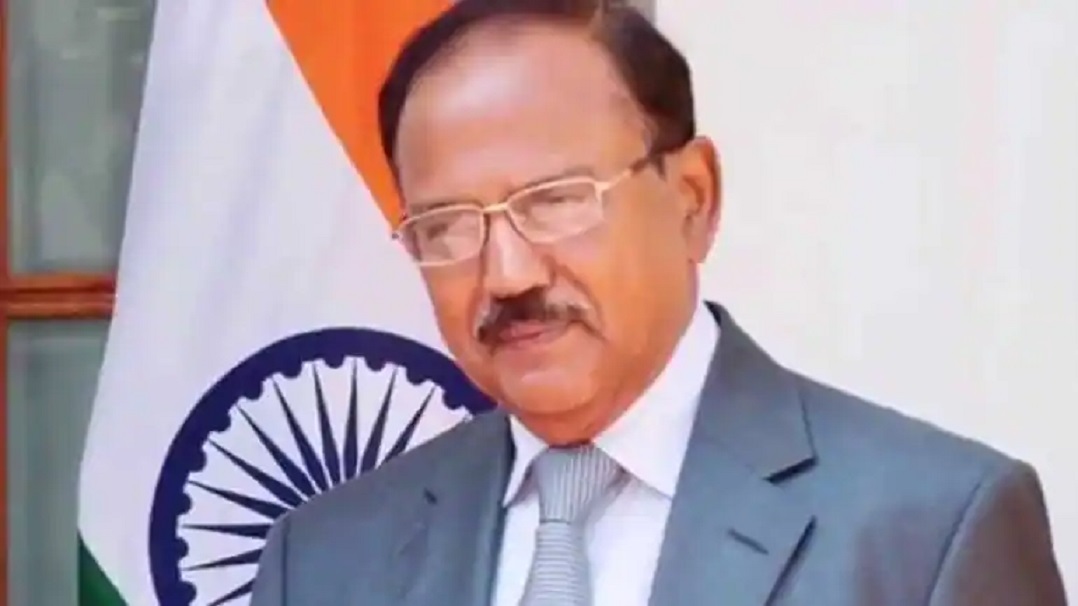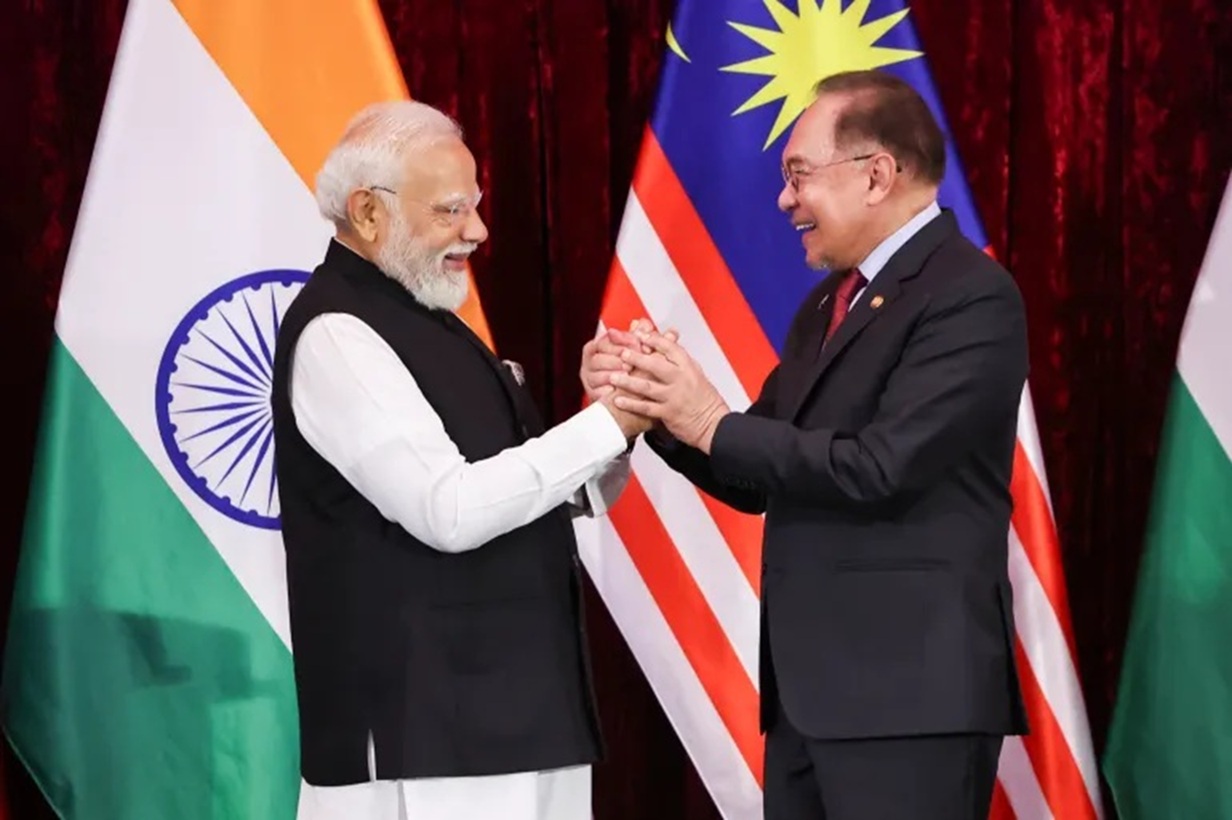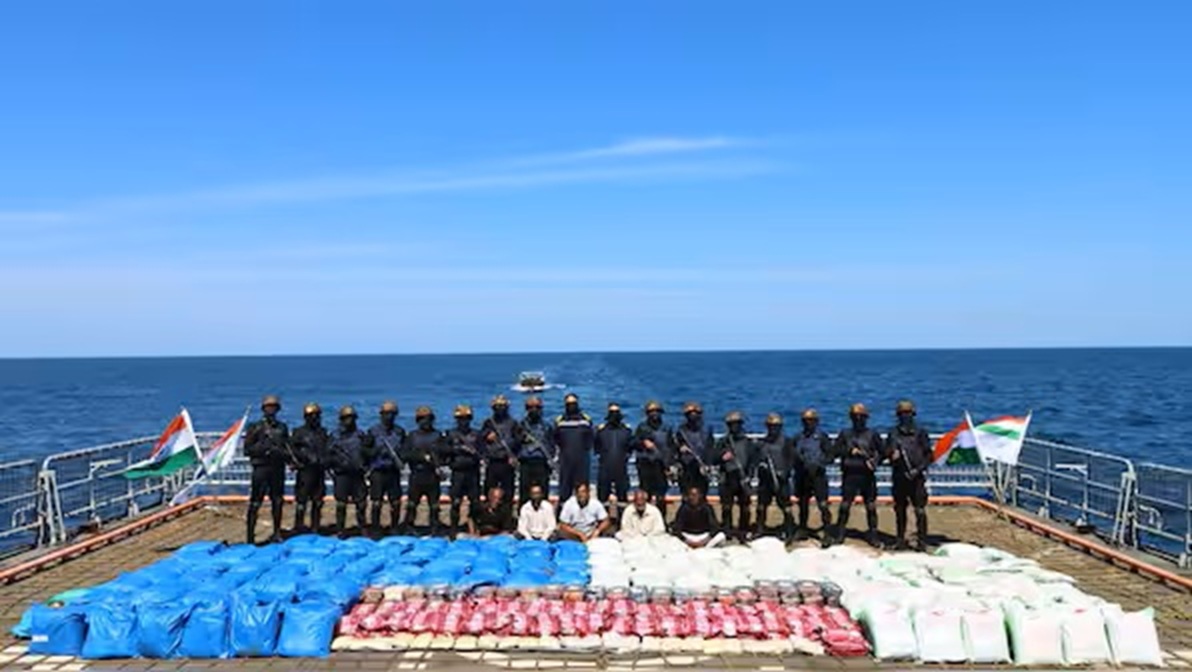IAS-turn-Civil Society activist Aruna Roy published a column titled “Civil Society is not enemy” on 18 Nov in ‘The Print’ and on 19 Nov in ‘The Indian Express’ questioning the constitutional rationality of former IPS and IB-Director and now National Security Adviser to the government of India with cabinet minister rank Mr Ajit Doval, who is incidentally her batchmate, advice to passing out IPS probationers.
Mr Doval, who was the chief guest in the passing-out parade at Police Academy in Hyderabad on November 11, stated and I quote, “The new frontier of war, what you call the fourth-generation warfare, is the civil society. Wars have ceased to become an effective instrument for achieving their political or military objectives. They are too expensive and unaffordable and, at the same time, there is uncertainty about their outcomes. But it is the civil society, that can be subverted, that can be suborned, that can be divided, that can be manipulated, to hurt the interests of a nation. And you are there to see that they stand fully protected”.
Ajit Doval’s above-quoted statement can be divided into two parts. Part one reads: The new frontier of war, what you call the fourth-generation warfare, is the civil society. Wars have ceased to become an effective instrument for achieving their political or military objectives. They are too expensive and unaffordable and, at the same time, there is uncertainty about their outcomes. And Part two reads: But it is the civil society, that can be subverted, that can be suborned, that can be divided, that can be manipulated, to hurt the interests of a nation. And you are there to see that they stand fully protected.
Also, NSA says about Fourth-generation Warfare, shortly called 4GW. The simplest definition of 4GW includes ‘any war in which one of the major participants isn’t a state but rather a violent non-state actor. Fourth-generation warfare has often involved an insurgent group or other violent trying to implement their own government or reestablish an old government over the current ruling power’.
Currently, India has several insurgent groups or violent non-state actors and it looks like some civil society members are facilitating them. When Ajit Doval says “But it is the civil society, that can be subverted, that can be suborned, that can be divided, that can be manipulated, to hurt the interests of a nation”, he accepts Civil Society has a major role in democratic governance (means civil society is not enemy); but at the same time, that can be subverted, suborned, divided and manipulated to hurt the interest of a nation, and therefore “You(IPS) are there to see that they stand fully protected.”And it is also the job of IPS to find out who, when, where, and how Civil Society is subverted, suborned, divided, and manipulated apart from supervising law and order in the society. Protecting civil society members from subversion, suborn, division and manipulation are the new frontiers of war.
I don’t know whether Indian Civil Society is subverted, suborned, divided, and manipulated or not, but I know there are a large number of influential black sheep in Indian civil society having direct link with inimical elements abroad who have been relentlessly working against national interest by way of engaging themselves in creating political instability and disharmony among communities, castes, regions, languages, etc.
On 13 January 2018, four senior-most judges including one who later became Chief Justice of India(CJI) called for a press conference in New Delhi –the first of its kind in India’s judiciary history- when they were supposed to be in the CJI chamber for their morning tea together as per the age-old convention, and made some allegations against the then CJI over his style of functioning. Factually, this was an in-house crisis of the apex court which is an autonomous organ of the Indian governance system. When this issue was brought to the notice of the executive, it told ‘Indian Judiciary is mature enough to take care of any difference within it.’ Though the revolt did not impact the judicial functioning later and things got normalized in no time, there were several issues in which some members of Civil Society had dubious connections.
In the presser, one senior journalist, who was the head of the Editor Guild of India and having dubious journalistic distinction, and a senior SC lawyer, who allegedly violated FCRA norms to get a foreign donation, were spotted prompting judges standing behind them while they were addressing the press. Soon later, a senior disgruntled politician and former Cabinet Minister of Finance and Foreign Affairs in Chandra Shekhar and Atal Bihar Vajpayee governments, whose son was a minister in 2018, call for the revolt of senior leaders and ministers in the ruling party and coalition government. It is a different matter altogether that no minister resigned including his son responding to the call.
All the above-discussed people are now prominent members of the India Civil Society. Are they don’t know that after two and half decades of unstable coalition governance and policy paralysis which severely impacted national security, economy, and social stability accompanying unprecedented corruptions, for the first time the people of India chose a government with the absolute majority to govern with stability? Additionally, they propagated ‘this is the government of 31% (as per 2014 GE vote share) Indians’, who voted for it, without accompanying information that the previous government for ten years (2004-14)had less than 30% voters’ votes, and its PM was never elected. What for the above-listed activities of prominent Civil Society members? Should IPS officers not watch who, when, where, and how Civil Society is subverted, suborned, divided, and manipulated, and for what? Here the author of “Civil Society is not enemy” should not forget that IPSs use to take an oath with “I, …., do swear/solemnly affirm that I will be faithful and bear true allegiance to India and to the Constitution of India as by law established, that I will uphold the sovereignty and integrity of India and that I will carry out the duties of my office loyally, honestly, and with impartiality. (So help me God !)”
Before concluding, I would like to bring to the notice of my fellow Indians that I am in India where Civil Society members such as:
Painter could paint nude pictures of his motherland and majority community deities with vulgar captions and the majority community people were asked to accept the same as master art pieces to get certificates of secular. During high days of such controversy, I asked one certified secular ‘Can you host these nude and vulgar pictures in your house portico, lobby, drawing room, etc.’, he told me ‘these are actually honeymoon room materials with captions san deities’ names’. Can social harmony in any country be maintained hurting the religious sentiment of the majority community? Here, one should not forget that religion as an issue is as old as human civilization, and the world’s 93% population adhere to at least one religious identity.
Here, in my India, civil society activist refuses to read the government laws but fight and instigate people against the law(CAA-ABP debate); vegetarian-Gandhian historian eats beef to celebrate his visit to a state ruled by a party he does not like; film star born, brought up, gain popularity living his whole life in India but says he was very comfortable in Pakistan, which is known all over the world as manufacturer and exporter of terror, during his few days stay there; internationally reputed people tweet fake news in order to instigate gullible farmers for violence in none other than nation’s pious Republic Day in the national capital; etc., etc. ……. there are hundreds of examples. And here civil society members (professors, writers, etc.) prefer to be fans of pop stars and porn stars than economists with proven calibre (Ref: Farm Laws tweet) because they are from West where evangelist-cum-inside trader convict George Soros promised to fund billion-dollar to remove his branded nationalist Government in India.
Are the above narrated civil society activities not facilitating violent non-state actors? If yes, should NSA mandated to protect national security not advice his subordinate officers to remain vigilant?
Disclaimer: The views and opinions expressed by the author do not necessarily reflect the views of the Government of India and Defence Research and Studies





